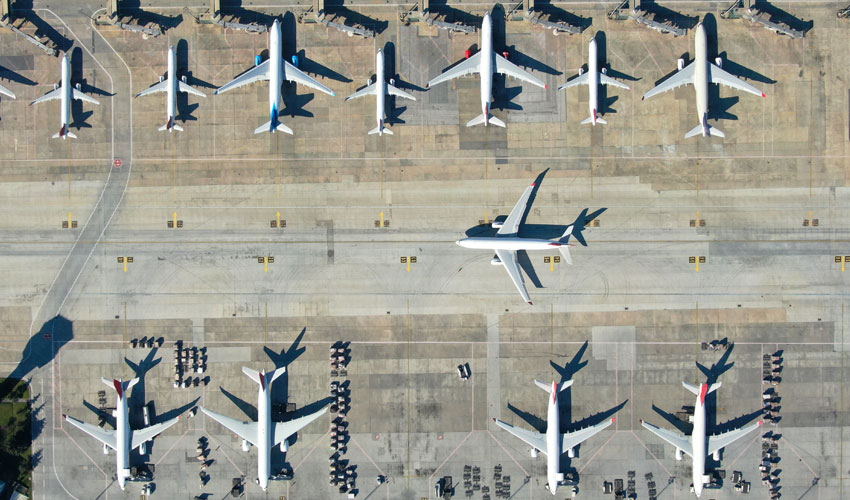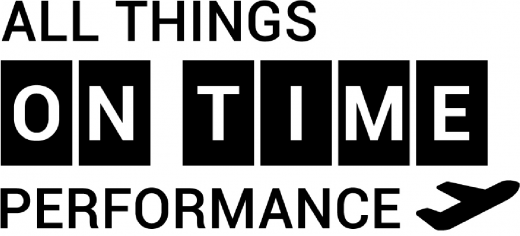Fasten your seatbelts and get ready for what could be a record-breaking summer travel season in 2024. Airlines across the world are anticipating a very busy travel season, potentially outperforming 2023’s strong showing. Last year, global passenger traffic reached 94.1% of pre-pandemic levels. For 2024, predictions point to global traffic reaching 9.7 billion passengers, surpassing 2019 levels by 6%. While there is some speculation about when the growth rate will start to decelerate, the so-called pent-up travel trend may remain in play.
According to the International Air Transport Association (IATA), 4.7 billion travelers are expected to take to the skies during the warm months. Some European airlines, such as British Airways and Air France-KLM, are already reporting high summer bookings. Meanwhile, major U.S. carriers could be flying 6.3% more passengers than last year. However, as passenger numbers soar, airlines are struggling to accommodate all demand with available seats.
Rising Profits Expected for Summer Travel 2024
With higher bookings, there is an expectation of increased profits. Earlier this year, OAG data indicated that 817.2 million seats were already scheduled by European carriers for summer travel 2024. This figure represents a record high for the European market. Furthermore, Europe’s six largest carriers are projected to achieve adjusted operating profits of £10.5 billion ($13.2 billion) according to FactSet, up from £9.2 billion ($11.6 billion) in 2023. While there is reason for optimism, airlines know that market conditions will remain challenging.
Supply Challenges Continue Causing Headaches
Quality control issues in aircraft production and regulatory crackdowns have slowed down the expected delivery of aircraft, leading to capacity challenges. However, some airlines are less concerned about these delays than others. For example, IAG CEO Luis Gallego said that if the certification of Boeing’s 737 MAX 10 was slowed down, IAG could convert to other options. “For the time being, we aren’t worried. We are sure they’ll fix the situation.”
Other airlines are preparing for these challenges by ramping up their capacity. Lufthansa has been reactivating retired aircraft and expanding its fleet with second-hand airplanes. To meet Northern Hemisphere summer season demands, Ryanair, easyJet, and Wizz Air are in ramp-up mode. In 2023, Ryanair took delivery of 50 Boeing 737s. This February, Ryanair CEO Michael O’Leary said the airline might have to reduce its summer schedule, which had reflected the expected delivery of 50 of the 57 Boeing Max 737-8200s it had on order. The cuts would likely affect routes with high daily frequencies.


Sharing Best Practices
Some airlines, along with airports, ground handlers, and air navigation service providers, have met with EUROCONTROL to best apply lessons learned from the summer of 2023 in preparation for summer travel 2024. Their goal is to ensure efficient operations for Europe’s aviation network. Last year, the network had to cope with reduced airspace stemming from the Russia-Ukraine conflict along with a 7% increase in demand compared with the summer of 2022. This year, the war in the Mideast and economic volatility pose additional challenges. Those aviation companies working in partnership with EUROCONTROL plan to:
- Prioritize first rotations,
- Execute disciplined flight plans,
- Deliver agreed capacities,
- Strive to achieve realistic schedules, including turnaround times, and
- Manage adverse weather.
Positive Outlook for Summer Travel 2024
Summer 2024 is shaping up to be a dynamic season for the aviation industry, filled with both challenges and opportunities. With measures already in place to handle the busy season, including airlines increasing their seat capacity, there is a sense of optimism.
With crowded skies expected, travelers may be concerned about whether the industry can manage the anticipated demand and avoid the chaos of flight cancellations. However, data from FlightAware suggests a positive trend: U.S. carriers canceled only 1.7% of flights last summer, down from 2.1% in 2022. While some factors leading to flight delays and cancellations are beyond control, the aviation sector is committed to offering a smooth travel experience through careful planning, innovative solutions, and a strong focus on customer service.
>> What are your travel plans for summer, and how do you feel about the upcoming busy season?




0 comments on “Rising Demand and Challenges Ahead for Summer Travel 2024”